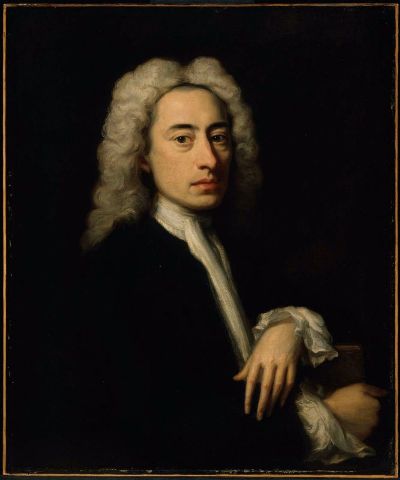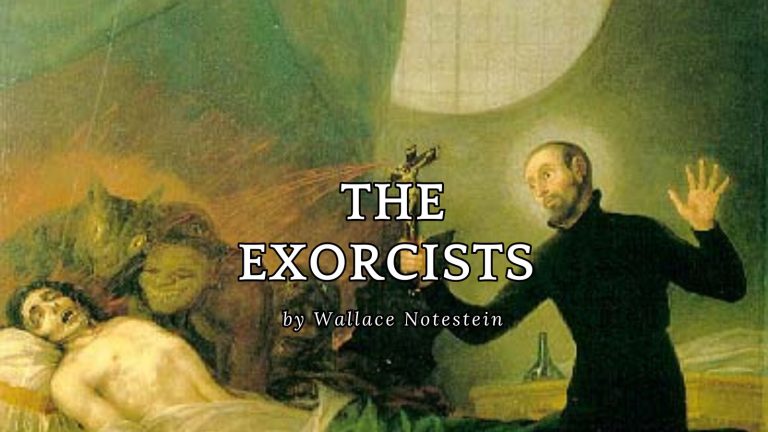HOW TO MAKE AN EPIC POEM
by Alexander Pope

It is no small pleasure to me, who am zealous in the interests of learning, to think I may have the honor of leading the town into a very new and uncommon road of criticism. As that kind of literature is at present carried on, it consists only in a knowledge of mechanic rules which contribute to the structure of different sorts of poetry, as the receipts of good housewives do to the making puddings of flour, oranges, plums, or any other ingredients. It would, methinks, make these my instructions more easily intelligible to ordinary readers, if I discoursed of these matters in the style in which ladies learned in economics dictate to their pupils for the improvement of the kitchen and larder.
I shall begin with epic poetry, because the critics agree it is the greatest work human nature is capable of. I know the French have already laid down many mechanical rules for compositions of this sort, but at the same time they cut off almost all undertakers from the possibility of ever performing them; for the first qualification they unanimously require in a poet is a genius. I shall here endeavor (for the benefit of my countrymen) to make it manifest that epic poems may be made “without a genius,” nay, without learning, or much reading. This must necessarily be of great use to all those poets who confess they never read, and of whom the world is convinced they never learn. What Molière observes of making a dinner, that any man can do it with money, and if a profest cook can not without, he has his art for nothing, the same may be said of making a poem—it is easily brought about by him that has a genius, but the skill lies in doing it without one. In pursuance of this end, I shall present the reader with a plain and certain receipt, by which even sonneteers and ladies may be qualified for this grand performance.
I know it will be objected that one of the chief qualifications of an epic poet is to be knowing in all arts and sciences. But this ought not to discourage those that have no learning, as long as indexes and dictionaries may be had, which are the compendium of all knowledge. Besides, since it is an established rule that none of the terms of those arts and sciences are to be made use of, one may venture to affirm our poet can not impertinently offend in this point. The learning which will be more particularly necessary to him is the ancient geography of towns, mountains, and rivers; for this let him take Culverius, value fourpence.
Another quality required is a complete skill in languages. To this I answer that it is notorious persons of no genius have been oftentimes great linguists. To instance in the Greek, of which there are two sorts; the original Greek, and that from which our modern authors translate. I should be unwilling to promise impossibilities; but modestly speaking, this may be learned in about an hour’s time with ease. I have known one who became a sudden professor of Greek immediately upon application of the left-hand page of the Cambridge Homer to his eye. It is in these days with authors as with other men, the well bred are familiarly acquainted with, them at first sight; and as it is sufficient for a good general to have surveyed the ground he is to conquer, so it is enough for a good poet to have seen the author he is to be master of. But to proceed to the purpose of this paper.
For the Fable.—Take out of any old poem, history book, romance or legend (for instance, Geoffrey of Monmouth, or Don Belianis of Greece), those parts of story which afford most scope for long descriptions. Put these pieces together, and throw all the adventures you fancy into one tale. Then take a hero you may choose for the sound of his name, and put him into the midst of these adventures. There let him work for twelve books; at the end of which you may take him out ready prepared to conquer, or to marry; it being necessary that the conclusion of an epic poem be fortunate.
To Make an Episode.—Take any remaining adventure of your former collection, in which you could no way involve your hero; or any unfortunate accident that was too good to be thrown away; and it will be of use applied to any other person, who may be lost and evaporate in the course of the work, without the least damage to the composition.
For the Moral and Allegory.—These you may extract out of the fable afterward, at your leisure. Be sure you strain them sufficiently.
For the Manners.—For those of the hero, take all the best qualities you can find in all the celebrated heroes of antiquity; if they will not be reduced to a consistency, lay them all in a heap upon him. But be sure they are qualities which your patron would be thought to have; and, to prevent any mistake which the world may be subject to, select from the alphabet those capital letters that compose his name, and set them at the head of a dedication before your poem. However, do not absolutely observe the exact quantity of these virtues, it not being determined whether or no it be necessary for the hero of a poem to be an honest man. For the under characters, gather them from Homer and Virgil, and change the names as occasion serves.
For the Machines.—Take of deities, male and female, as many as you can use. Separate them into two equal parts, and keep Jupiter in the middle. Let Juno put him in a ferment, and Venus mollify him. Remember on all occasions to make use of volatile Mercury. If you have need of devils, draw them out of Milton’s Paradise, and extract your spirits from Tasso. The use of these machines is evident; for since no epic poem can possibly subsist without them, the wisest way is to reserve them for your greatest necessities. When you can not extricate your hero by any human means, or yourself by your own wits, seek relief from heaven, and the gods will do your business very readily. This is according to the direct prescription of Horace in his “Art of Poetry,” verse 191:
Never presume to make a god appear,
But for a business worthy of a god.
That is to say, a poet should never call upon the gods for their assistance but when he is in great perplexity.
For a Tempest.—Take Eurus, Zephyr, Auster, and Boreas, and cast them together in one verse. Add to these of rain, lightning, and of thunder (the loudest you can) quantum sufficit. Mix your clouds and billows well together until they foam, and thicken your description here and there with a quicksand. Brew your tempest well in your head, before you set it a-blowing.
For a Battle.—Pick a large quantity of images and descriptions from Homer’s “Iliad,” with a spice or two of Virgil, and if there remain any overplus you may lay them by for a skirmish. Season it well with similes, and it will make an excellent battle.
For Burning a Town.—If such a description be necessary, because it is certain there is one in Virgil, Old Troy is ready burned to your hands. But if you fear that would be thought borrowed, a chapter or two of the Theory of the Conflagration, well circumstanced, and done into verse, will be a good succedaneum.
As for Similes and Metaphors, they may be found all over the creation; the most ignorant may gather them, but the danger is in applying them. For this advise with your bookseller.
For the Language (I mean the diction).—Here it will do well to be an imitator of Milton, for you will find it easier to imitate him in this than anything else. Hebraisms and Grecisms are to be found in him, without the trouble of learning the languages. I knew a painter, who (like our poet) had no genius, make his daubings to be thought originals by setting them in the smoke. You may in the same manner give the venerable air of antiquity to your piece by darkening it up and down with old English. With this you may be easily furnished upon any occasion by the dictionary commonly printed at the end of Chaucer.
I must not conclude without cautioning all writers without genius in one material point, which is, never to be afraid of having too much fire in their works. I should advise rather to take their warmest thoughts, and spread them abroad upon paper; for they are observed to cool before they are read.
- 8 Authors Who Created Literary Masterpieces Keeping Their Day Jobs - March 31, 2025
- Plotter or Pantser? A Writer’s Personality Quiz - March 30, 2025
- 100 Must-Try Mystery Writing Prompts (Solve the Perfect Crime!) - March 22, 2025






